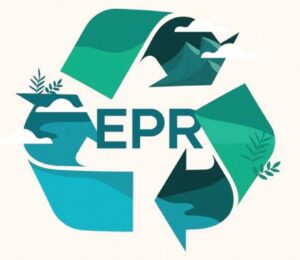Written on: January 1, 2024 by Nicholas Georges
The Household & Commercial Products Association (HCPA) recently publishedi its 2023 Government Relations & Public Policy Report, which highlights a range of legislative and regulatory issues that it engaged this year, including reauthorization and implementation of the Pesticide Registration Improvement Act (PRIA), funding for the U.S. Environmental Protection Agency (EPA), the Toxic Substances Control Act (TSCA), pesticide registration, per- and polyfluoroalkyl substances (PFAS) and more.

Packaging was one area that the HCPA engaged in heavily in 2023, specifically related to post-consumer recycled (PCR) content, household hazardous waste (HHW) and extended producer responsibility (EPR). EPR requires the producer of a product—such as the manufacturer, marketer and/or importer—to take responsibility for its end-of-life. This “producer pays” policy aims to shift end-of-life costs from the public sector to Industry.
Requirements of existing EPR programs vary from State to State. In 2023, 12 states introduced EPR proposals that did not pass, but would have directly impacted aerosol products. California, Colorado, Maine and Oregon remain the only four States with EPR laws for product packaging. However, in 2023, Marylandii and Illinoisiii approved State government-initiated studies intended to inform future EPR legislation, and Vermont enactediv an EPR law for HHW, making it the first U.S. State to introduce such a program.
While we expect to see even more EPR proposals in 2024, they will most likely be different than existing laws in the U.S. and other established EPR frameworks in Canada or Europe. This is because the EPR laws in California, Colorado, Maine and Oregon each have their own unique requirements. It is always our goal to avoid a patchwork of requirements among States to make compliance more manageable for manufacturers and marketers.
The work doesn’t stop once bills are signed into law. There is a role to play when it comes to implementation—and the aerosol industry needs to be involved. In terms of implementation, Oregon’s Dept. of Environmental Quality (DEQ) appears to be the furthest along, and HCPA anticipates aerosol containers to be included on the list of recycling materials that will be accepted through drop-off programs in 2024. Industry engagement in the implementation process will help ensure that drop-off programs for aerosol containers are managed properly and effectively.
California is implementing SB 54v and HCPA anticipates that it will be more difficult to keep aerosol containers recyclable in that State. Although California’s statute contains a provision exempting hazardous or flammable products as classified by the U.S. Occupational Safety & Health Administration’s (OSHA) Hazard Communication Standard,vi regulators and Industry do not always interpret these exemptions the same way.
If Industry chooses to utilize this exemption, it will be important to have a well-developed strategy to address the disposal of aerosol products that are viewed by key stakeholders as “hard to dispose of” because of perceived risks associated with managing waste from aerosol containers. If aerosols are excluded from California’s final EPR rules, environmental advocates may then propose legislation specific to aerosol products that would make recycling these products virtually impossible.
We will be keeping an especially close eye on Vermont during implementation of its HHW EPR law because this will most likely serve as the model for how other States address HHW programs. While HCPA was successful in eliminating numerous legislative mandates, the law is still quite onerous. Compliance with this law, as currently written, will be extremely challenging for Industry.
EPR is just one of the many topics that will be important to the household and commercial products industry in 2024. HCPA’s Government Relations & Public Policy Report discusses this (and other issues) in more detail, especially specifics in each State.
It was a busy year of legislative and regulatory challenges in 2023, with even more to come in 2024, but amidst all the business and chaos, all of us at HCPA wish you a happy and healthy New Year.
For more information about EPR or any issues impacting the household and commercial products industry, please contact me at ngeorges@thehcpa.org. SPRAY